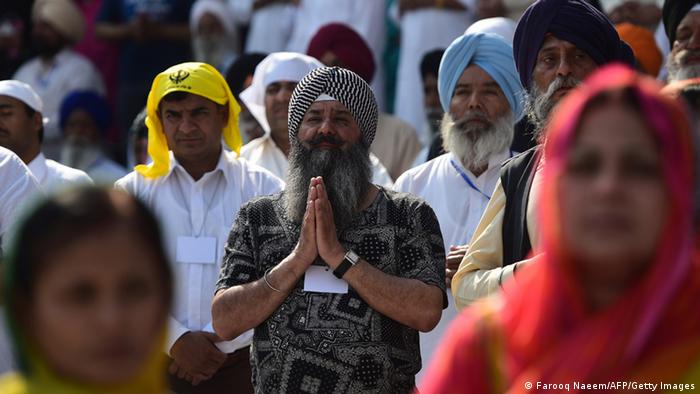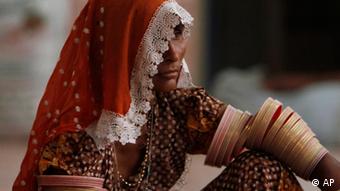Hindus and Sikhs living in Pakistan’s northwestern areas are forced to bury their dead instead of cremating them. What are the reasons behind this discrimination? Faridullah Khan reports from Peshawar.
“We don’t bury our dead, we cremate them. We believe that we never die, and that is why we burn the corpses,” Ajeet, a resident of the northwestern Pakistani city of Peshawar, told DW.
“Unfortunately, there are no crematoriums in the city. We have requested the authorities several times to provide us the facility, but they haven’t done anything,” Ajeet added.
Hindus make up 2.5 percent of the 174 million people living in Pakistan. The majority of them, over 90 percent, live in the southern Sindh province, but a considerable number of Hindus and Sikhs also reside in the northwestern Khyber Pakhtunkhwa province.
There is only one place near the Kabul River which offers the cremation facility, but it is out of reach for most Hindus and Sikhs in Peshawar.
“The Attock crematorium has all the facilities, but it is too expensive to carry the dead bodies that far from Peshawar. Most people can’t afford it,” Haroon Sarbdiyal, chairman of the All Pakistan Hindu Rights Movement, told DW.
Experts say this proves that the rights of the religious minorities are not protected in Pakistan, and that the provincial government is reluctant to provide them facilities to perform their religious rites.
“The Pakistani government only pays lips service to the plight of religious minorities. The constitution allows us to perform our religious duties and rites freely, but in practice, it is extremely difficult,” said Sarbdiyal, adding that the members of the Hindu community were not allowed to build a temple or crematorium on their properties.
A lack of resources?
The government denies any discriminatory attitude toward either Hindus or Sikhs. A provincial official accused that the representatives of the minority groups were corrupt and had no regard for the rights of their own people.
“When they get elected to provincial assembly, they forget about their community. It’s their job to take up the minority issues in the assembly,” the official told DW on condition of anonymity.
“The Hindus and Sikhs are scattered all over the province and in the tribal areas. We don’t have the resources to help all of them,” he added.
Although the burials are not allowed in their religions, the Hindus and Sikhs, however, have found a middle way.
“We are forced to bury our dead. But we have come up with a solution. We burn a coin and then put it on the palm of the deceased before burying the body,” said Hindu social worker Ram.
Attacked and harassed
There are better funeral facilities for Hindus in the southern Sindh province. But over the years, the violent attacks by religious extremists and forced conversions have driven many of them to take refuge in India.
Amarnath Motumal, a member of Pakistan’s Human Rights Commission (HRCP), told DW that the Pakistani Hindus “are very scared and not getting any help from anywhere.”
Motumal believes the main reason behind forced conversions and harassment is the surge of “religious extremism” in the country. “Extremist Muslims think that by converting a Hindu girl to Islam they have earned a place in heaven,” he said.
Rights activists also report an increased number of attacks on the minorities’ places of worship.
“Sometimes there are commercial reasons behind these attacks. But most of the time, the temples and churches are attacked for religious reasons,” Abdul Hai, a senior HRCP official, told DW. “Religious fanaticism is growing in Pakistan and religious extremist groups are getting stronger by the day. Unfortunately, the government is not doing anything to protect minorities and their places of worship.”
Experts say the government must step up efforts to protect the rights of the country’s religious minorities. They are being targeted because of their faith when they are alive, and are also discriminated against when they are dead, they underline.








